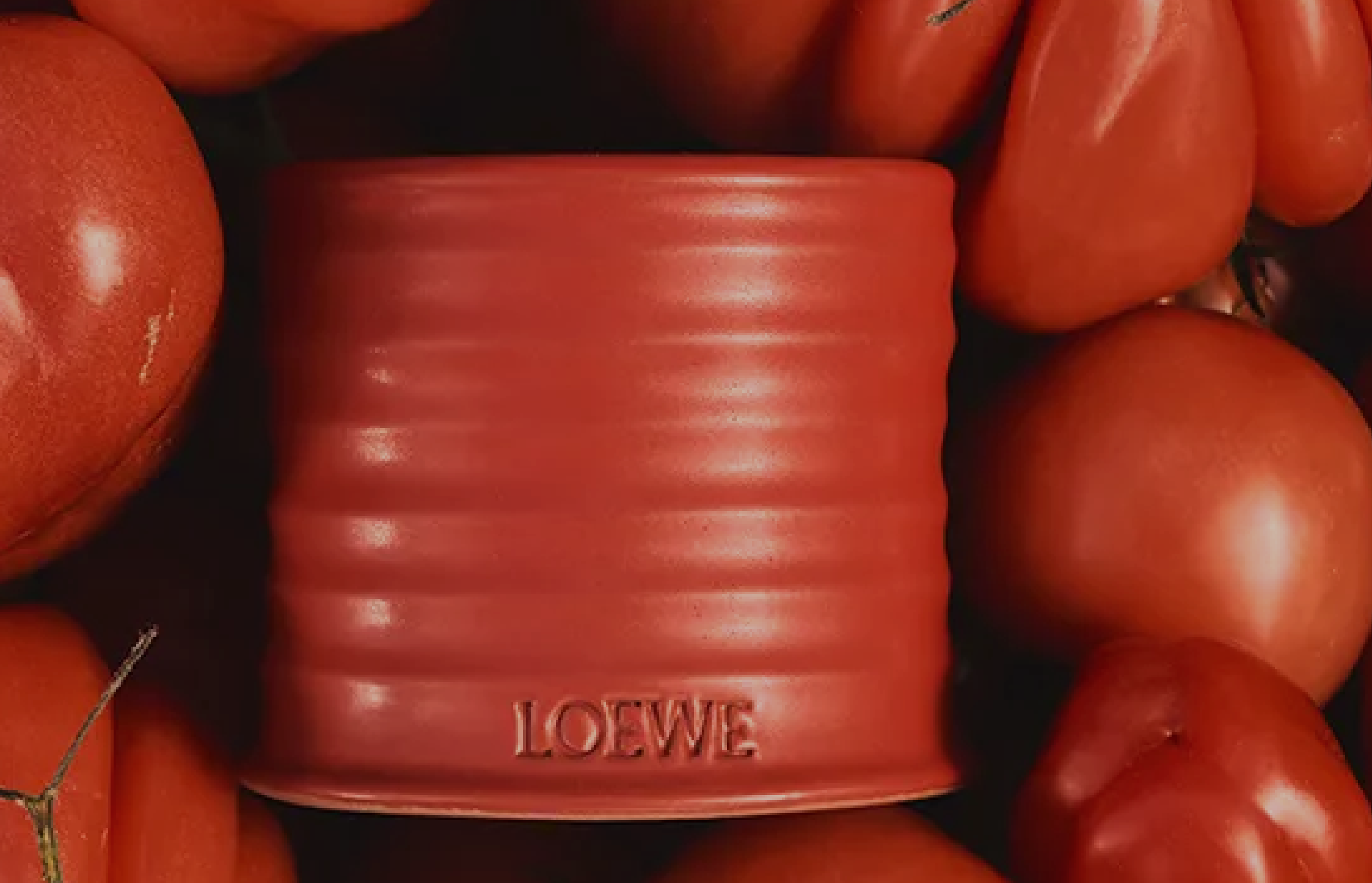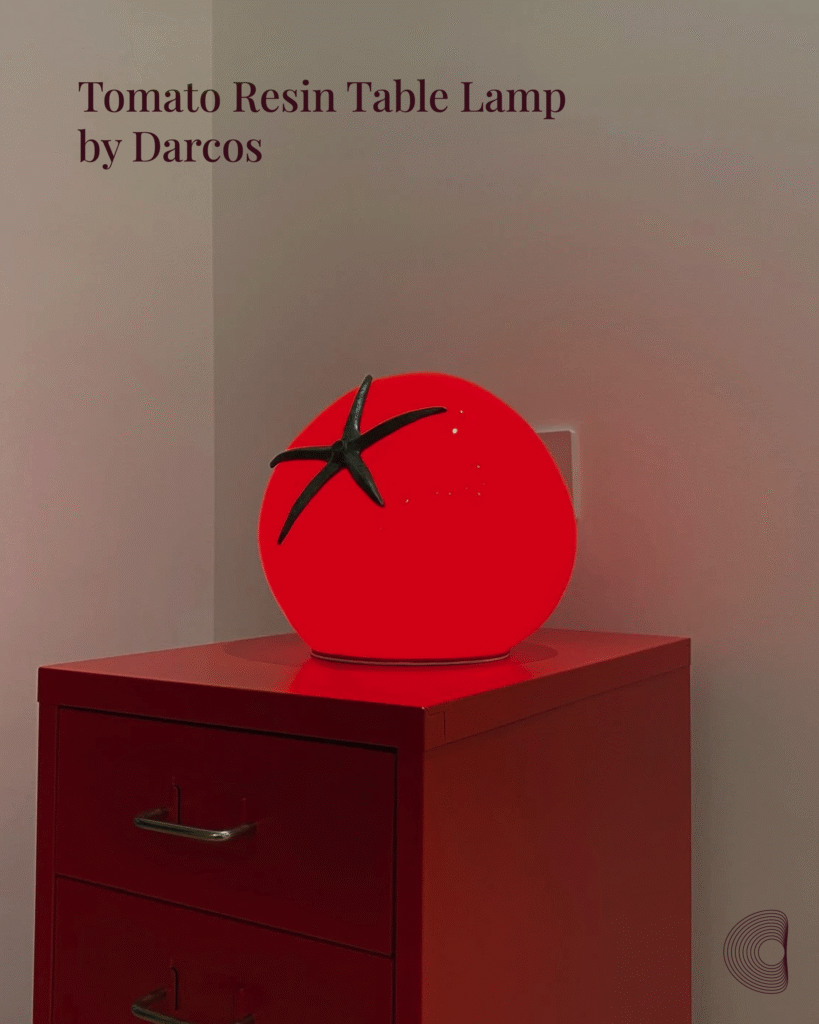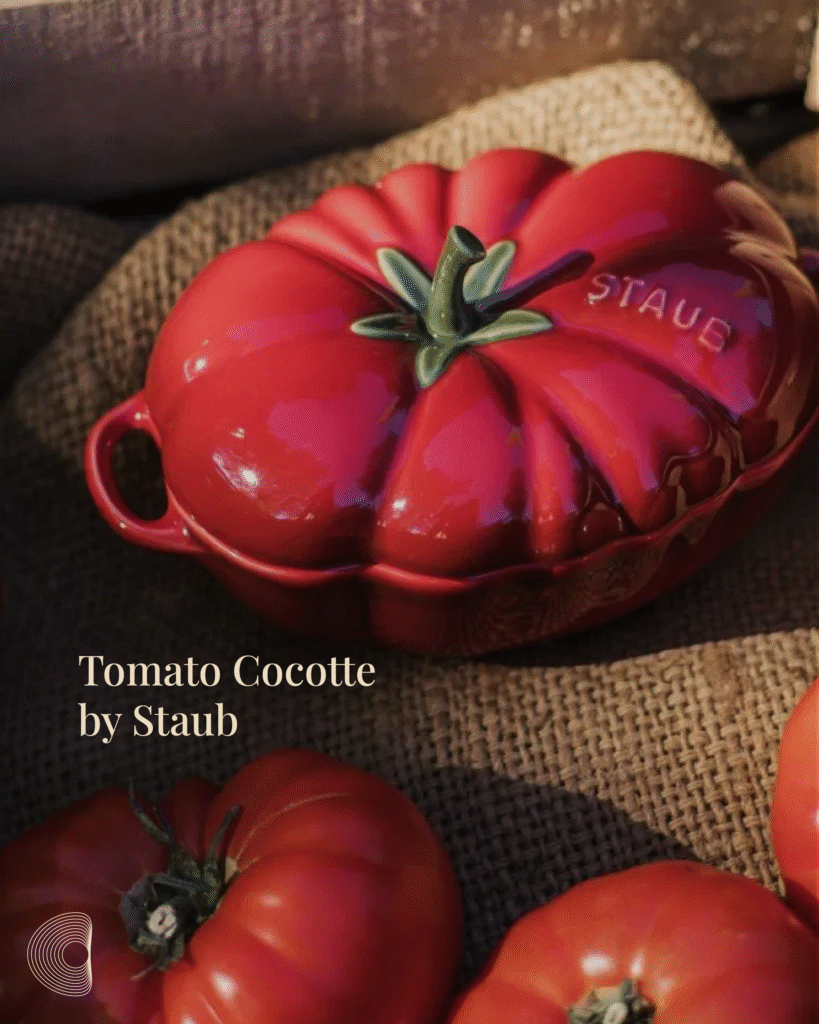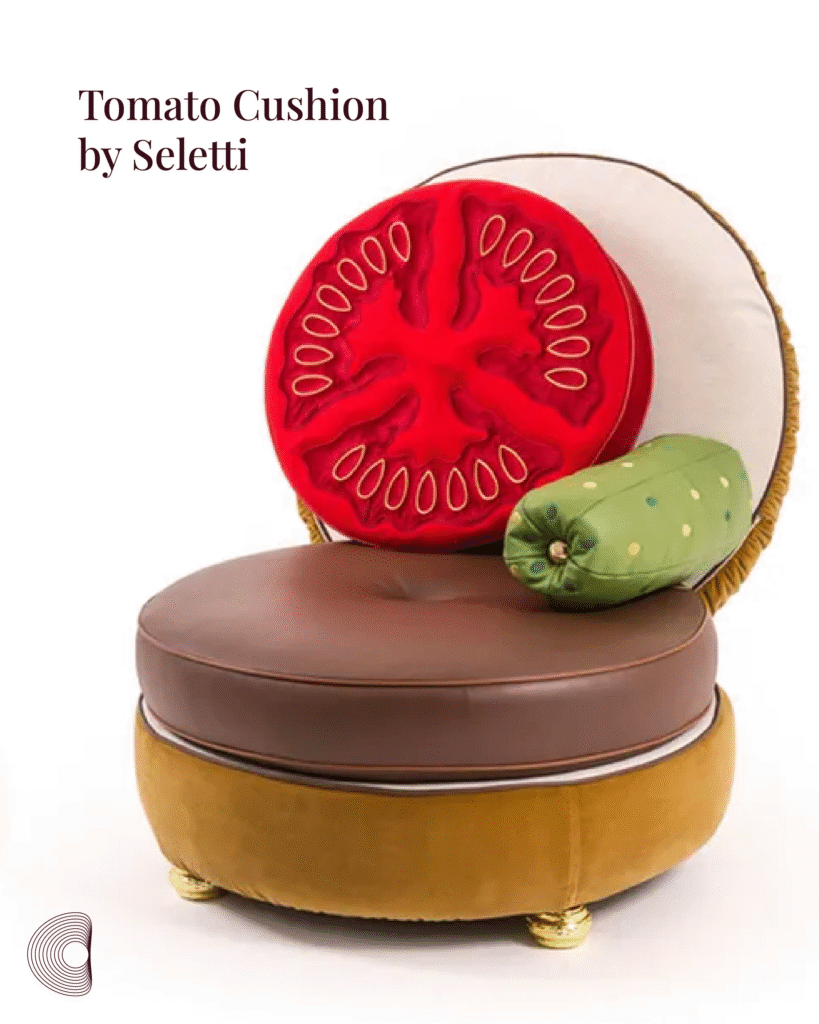
Loewe Doesn’t Own the Tomato
From cookware to sculpture, the tomato has had style long before the iconic clutch.
by İzlem Arsiya
There’s no denying it: Loewe has become nearly synonymous with the tomato.
What started as a cheeky meme spiraled into full-blown iconography. With their glossy tomato clutches, fruit-sculpture runways, and vegetable-core campaigns, the Spanish fashion house transformed the humble tomato into a covetable luxury symbol.
But here’s the thing, Loewe doesn’t own the tomato.
Designers, makers, and ceramicists have been celebrating this fruit long before it hit the runway. From plush home objects to collectible cookware and baby toys, the tomato has been quietly thriving across disciplines and categories, ripe with personality and form.
It makes sense. The tomato is nostalgic, sensuous, a little absurd. It sits at the intersection of design and desire; soft, sculptural, and instantly recognizable. No wonder it became cult.

In homes and studios around the world, the tomato has been reimagined again and again as sculpture, as utility, as ornament. Take Darcos for instance, creators of smooth, high-gloss tomato lamps that toe the line between object and sculpture. Or Luisa Paixão, whose handmade ceramic bowl sets, crafted in Portugal, turn dinnertime into a soft nod to still life. Staub gives it weight and function in cast iron, transforming the tomato into something timeless and table-ready. Oli & Carol bring it to the world of natural rubber baby toys, with rattles made from cherry seed shells. Even Seletti, known for pushing the surreal and the strange, collaborated with Studio Job on a plush velvet pillow shaped like a tomato slice; bold, kitschy, and knowingly offbeat.

What ties these objects together isn’t just the shape. It’s the transformation of something familiar into something tactile, expressive, and strangely emotional.
So while Loewe may have the tomato bag of the moment, the tomato itself is bigger than any one brand. It belongs to culture. To craft. To kitchens. To playrooms. To whoever wants to slice into its softness and see what they find.
Because ultimately the tomato doesn’t need a logo to be iconic.



